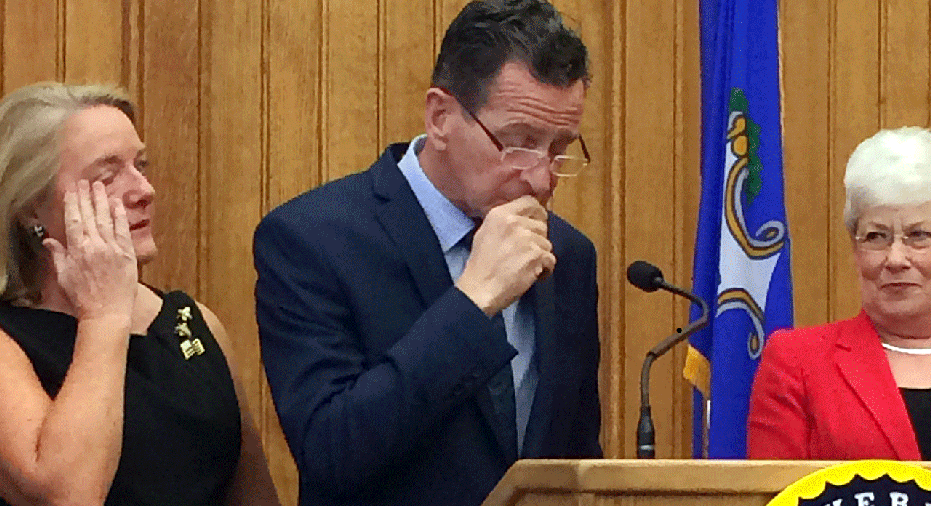Connecticut's capital on the brink of default as state budget deadlock continues

While Connecticut, one of the nation’s wealthiest states, is running on four months without an operating budget, the state’s capital is in severe fiscal distress.
Hartford will likely default on its debt as early as November, a newly-released report from Moody’s Investors Services projects. With operating deficits at about 11% of revenues, Moody’s estimates that deficits over the next two decades will run about $60 to $80 million per year, due to to the cost of pensions, insurance, benefits and debt service.
On Sept. 26, Moody’s downgraded the city’s bond rating further into junk territory, stating that after a “likely” default, bondholders may only recover from 65% to 80% of their money. The city has more than $500 million in outstanding debt.
Labor unions are one of the biggest drains on the city’s finances, Moody’s said.
“High labor costs result from decades of contractual salary increases and employee benefits, which will continue to be factors in the long-term structural imbalance,” the report said. “Over each of the last 10 years, benefits and insurance costs have increased 6.1% on average, more than any other line item … The cost is also the city's largest expenditure and is budgeted to increase 28% in 2018, an increase of $21 million, due to rising pension and health insurance costs.”
In addition to bondholders and labor unions, Moody’s listed the state as the third stakeholder that will need to compromise with the city in order to achieve “financial sustainability.”
Moody’s said additional funding from the state would help alleviate Hartford’s problem, however, the state government is currently locked in a budget battle that is partially focused on additional aid for the city.
Connecticut, which boasts a $3.5 billion deficit, has been operating without a state budget since July 1. After the state legislature was unable to reconcile partisan differences in order to pass a spending package before the onset of the new fiscal year in July, Gov. Dannel Malloy, a Democrat, assumed control over the state’s finances through an emergency executive order to continue appropriations until lawmakers agree on legislation.
Meanwhile, the state is battling a milieu of other fiscal challenges beyond the budget.
Despite having a per capita personal income that is more than 143% of the national average—according to Moody’s Investors Service— the state’s economy continues to lag behind others. Revenue shortfalls in the state register around $450 million for the current fiscal year alone, while estimated deficit totals are projected to clock in near $5 billion for the 2018 and 2019 fiscal years combined, according to The Connecticut Business & Industry Association. Debt outstanding levels and unfunded pension liabilities relative to revenues are among the highest of any state in the country, Moody’s said in May.
Hartford’s mayor Luke Bronin told bondholders last month that the city had no room to tax its way out of the fiscal crisis, according to Reuters.



















